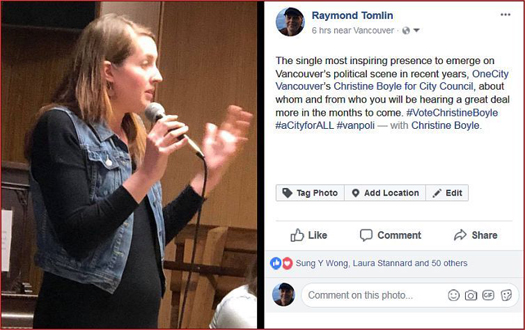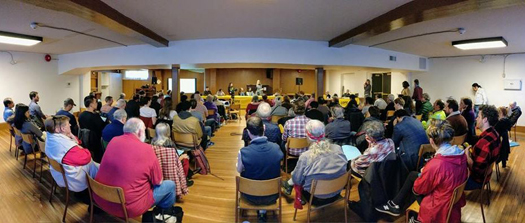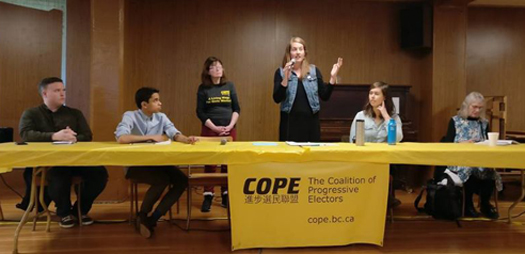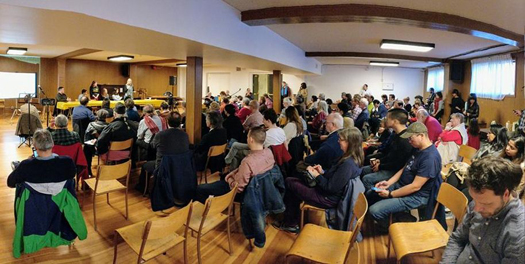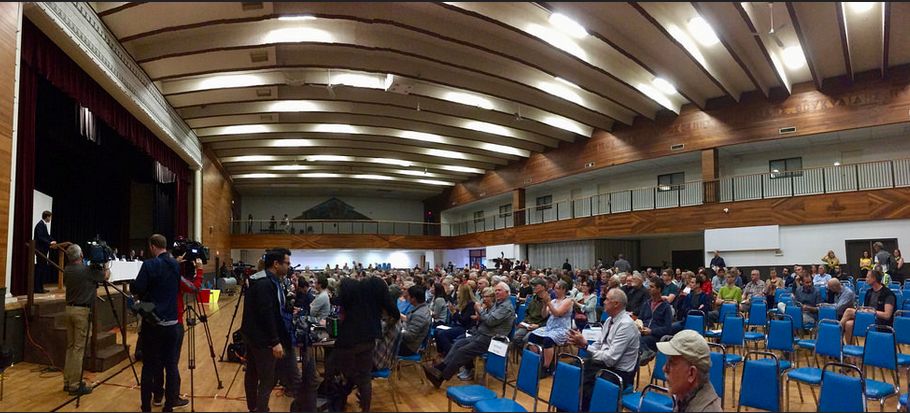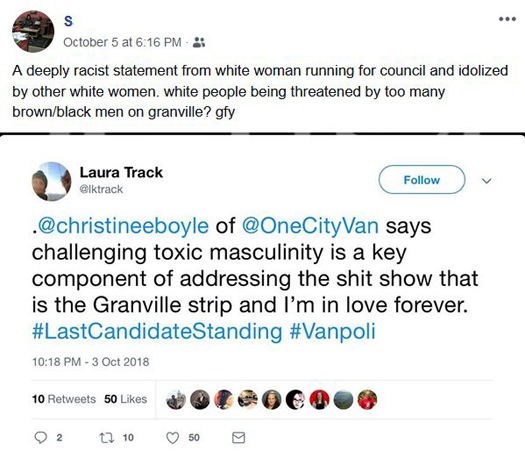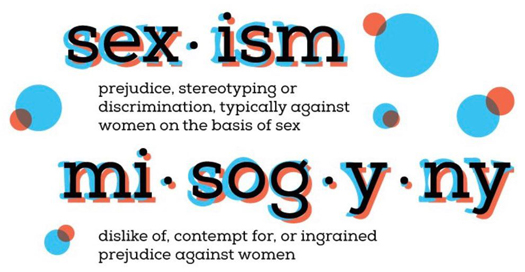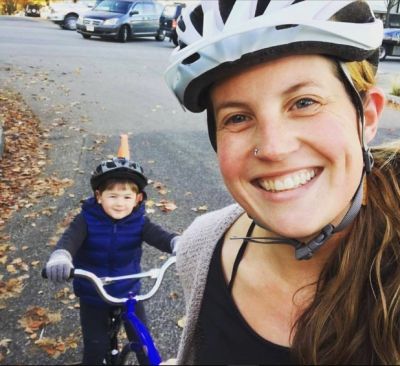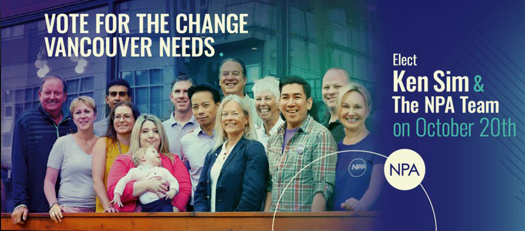 Vancouver Mayor Gregor Robertson, with Vancouver City Councillors circa 2015
Vancouver Mayor Gregor Robertson, with Vancouver City Councillors circa 2015
Long, long overdue, today VanRamblings sets about to right a wrong that, over many years, VanRamblings committed against Vision Vancouver, in failing to properly acknowledge all the good the Vancouver-based political party achieved in their 10 years in power at Vancouver City Hall.
Was Vision Vancouver “perfect” while in power? No, they weren’t. But short of a flower blooming in spring, or the birth of a newborn child, one is not likely to find perfect anywhere on Earth. Vision Vancouver set about to make our city the Greenest City on Earth — towards that end, the members of the Vision Vancouver civic administration did an outstanding job!
Reconciliation with our indigenous peoples, the adoption of a Women’s Equity Strategy, ensuring that the 33 Advisory Committees to Council remained vibrant, the adoption and implementation of a groundbreaking gender variant policy that helped to make ours a fairer and more just city for all of us who reside in our paradise by the sea, constructing hundreds of social housing units, creating the legacy Community Land Trust that will continue in the next civic administration to play a key role in the development of affordable housing for a sometimes beleaguered Vancouver population, declaring Vancouver a sanctuary city, and fighting against racism, xenophobia and intolerance — all of these necessary initiatives barely scratch the surface of all the good that Vision Vancouver was able to accomplish in their 10 progressive years in power at Vancouver City Hall.
First, a bit of perspective on VanRamblings’ apology, where we once again bury the lede. As per usual, a story that we hope helps to provide context.
 Prime Minister Jean Chrétien, and federal Liberal party Finance Minister Paul Martin
Prime Minister Jean Chrétien, and federal Liberal party Finance Minister Paul Martin
After nine years in power, the federal Progressive Conservative Party administration of Prime Minister Brian Mulroney was soundly defeated at the polls in Canada 35th general election on October 25th 1993, leaving the once dominant party with only two seats in the house. The incoming Jean Chrétien Liberal Party government garnered 177 seats and 41.24% of the popular vote, while inheriting a $42 billion annual deficit, and a bankrupting $780 billion long term debt that emerged as a key factor in the unpopularity and eventual defeat of the Mulroney government. It is often said that Liberal and NDP administrations couldn’t manage a popsicle stand, that Conservatives are the fiscally responsible political party — which is so much poppycock and nonsense, and the absolute reversal of the truth.
Incoming Prime Minister Jean Chrétien, and the yet-to-be appointed Liberal party Finance Minister Paul Martin were hardly bosom buddies. Jean Chrétien, le p’tit gars de Shawinigan (“the Little Guy from Shawinigan”) raised in some degree of poverty in Québec in the 1930s and 1940s had little time for the wealthy Canada Steamships scion, raised with a silver spoon in his mouth. The bitter 1990 Liberal Party leadership convention left the political rivals bitter political enemies. Even so, in November 1993, once Paul Martin placed his family holdings in a blind trust, the newly re-elected Paul Martin was appointed to the cabinet and named Minister of Finance.
For Prime Minister Jean Chrétien appointing Paul Martin as Finance Minister was political payback — let Paul Martin garner the opprobrium of provincial governments across Canada, as well as public sector unions, the small business and corporate sector, and the people of Canada as he went about wrestling the $42 billion annual deficit to the ground, setting about to lower Canada’s economically unsustainable long term debt, as well.
Paul Martin did exactly that, but not without controversy. Martin implemented huge budget cuts that almost ground economic growth to a halt, scaling down government to 1951 levels, while cutting transfer payments to the provinces that had paid for social programnes, health care, and public infrastructure, including the construction of affordable housing.
By 1998, Martin introduced a balanced budget, an event that had occurred only twice in 36 years before 1997, while also ushering in a recession.
Even so, the budget was balanced, CPP overhauled, and Employment Insurance taxes were increased to a level that raised an “extra” $20 billion each year to pay down the long term debt — by 2002, Moody’s and Standard and Poor’s restored Canada’s domestic and foreign currency debt ratings to AAA. When Jean Chrétien announced he would be stepping down as Prime Minister, Paul Martin was removed from his position as Finance Minister in order to concentrate on his to run for the Liberal leadership. On November 14, 2003, Martin succeeded Jean Chrétien as leader of the Liberal Party, becoming Prime Minister on December 12, 2003.
Was it necessary for Jean Chrétien to remove Paul Martin as Finance Minister? Nope. That decision by the Prime Minister was yet another arrow aimed at the heart and the political ambition of his longtime political rival.
Soon after Paul Martin became Prime Minister, the Globe and Mail published a story alleging financial wrongdoings by the Chrétien government involving tens of million of federal taxpayers dollars improperly paid to Quebec-based Liberal operatives to secure victory in the 2004 Canadian federal election.
Martin met with now former Prime Minister Chrétien to ask him about the improper expenditures, which improper payment Chrétien readily admitted to, while also advising Martin to “bury it”, and announce to the press that his government would conduct an internal investigation — an investigation that would never see the light of day. Chrétien told Martin he’d successfully buried controversies, repeatedly, as Prime Minister of Canada.
But Paul Martin was a boy scout — and he thought Chrétien a despicable, corrupt, self-serving politician. “We’ll get to the bottom of this burgeoning scandal,” Martin bellowed to the press. Soon after, Martin struck The Gomery Commission (formally the Commission of Inquiry into the Sponsorship Programme and Advertising Activities), the federal Canadian Royal Commission headed by Justice John Gomery for the purpose of investigating the the Québec-based sponsorship scandal, which involved allegations of corruption within the Canadian government.
Justice Gomery released a first report on the scandal on November 1, 2005, which brought down the Martin government. To add insult to injury, after boy scout Prime Minister Paul Martin lost the early 2006 federal election to Conservative Party leader Stephen Harper, in 2008, Federal Court of Canada Judge Max M. Teitelbaum set aside Gomery’s conclusion that Jean Chrétien and Jean Pelletier shared blame for the mismanagement of the programme to boost the federal government’s profile in Quebec, a decision that was appealed and upheld by the Federal Court of Appeal.
From the outset, Chrétien had advised Martin to “bury” the story; if he didn’t, it would bring down his government, and Paul Martin would become the Prime Minister of shortest tenure in Canadian history, all while embroiled in a “scandal” not of his own making. But Paul Martin didn’t listen — he didn’t want to bury the story, he wanted to bury his long time rival Jean Chrétien — but in the process, he destroyed his legacy.
Why did Martin set about on this destructive path? One word: hubris.
Hubris is often defined as “an extreme and unreasonable feeling of pride and confidence in oneself, an overweening presumption that leads a person to disregard the fixed limits on human action, that means to bring shame upon a rival, while asserting the piety of the accuser.”
Proverbs 16:1 reads as follows, “Pride goeth before destruction, and an haughty spirit before a fall. Better it is to be of an humble spirit with the lowly, than to divide the spoil with the proud.”
Outside of the Biblical context, the proverb still has a ring of truth: overconfidence in oneself not only often leads to mistakes, it can lead to one’s downfall — while Paul Martin lost government, by 2008 his bitter rival, Jean Chrétien, had received absolution, leaving Martin as an unfortunate footnote is the politas of Canadian federal politics.
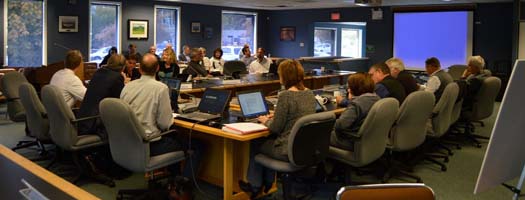
The Board of Variance at City Hall is the most powerful creature of city government. A quasi-judicial lay body, the Board of Variance possesses the authority to overturn decisions of both the Planning Department, and the City Council itself. In British Columbia, dating back to 1955, the provincial government has required local governments across British Columbia to establish a Board of Variance in their community to oversee all development decisions of the local government, in Vancouver involving not just development — inclusive of applications for property renovations by homeowners to the construction of massive towers, where a relaxation of the applicable zoning bylaw has been granted by either the Planning Department or City Council — but tree removal and signage.
Long story short, the COPE Council in 2005 appointed VanRamblings to Vancouver’s Board of Variance; in 2009, when a vacancy arose, the Vision Vancouver civic administration re-appointed VanRamblings to a new three year term of office — only to fire us two months after our appointment, as we sought to stand up for the central tenets of Board of Variance procedure: independence of Board appointees, and meetings that were open to the public, both of which necessary tenets we felt were breached by the appointed Board of Variance of the day.
We were devastated and bitter when fired by Vision Vancouver.
In response to the firing, VanRamblings made Vision Vancouver, and anyone associated with Vision Vancouver, our bitter enemy — which, as you might imagine, was not a very good look for us, although our bitterness and daily blogging on VanRamblings and thousands of social media posts taking Vision Vancouver to task, whether reasonably or unreasonably, bore fruit in the realpolitik of Vancouver.
As far as we were concerned, Vision Vancouver could do no good.
For years, VanRamblings continued to be bitter and pointed in our criticism of Vision Vancouver, which for the cynics in our community was satisfactory, indeed — human nature seems to take the greatest possible delight in “taking down” politicians. VanRamblings’ readership blossomed — the more bitter our denunciation of Vision Vancouver, the greater our readership.
VanRamblings was successful in creating destructive memes bitterly attacking Vision Vancouver, in the process creating an untoward narrative about Vision Vancouver that saw no good in anyone affiliated with Vision Vancouver, or anything Vision Vancouver did, no matter how laudatory was a Vision Vancouver accomplishment.
The result of all this bitterness? It almost killed us.
As I’ve written many times previously, in August 2016, VanRamblings was diagnosed with hilar cholangeocarcinoma, a deadly, rare form of inoperable cancer that steals the lives of all those who are diagnosed with this terminal form of cancer. In the near eight months we were bed-ridden following our diagnosis, we had a great deal of time to reflect on the meaning of our existence, and both all the good that we had achieved for others, and all the demeaning and destructive acts of hubris we had performed in the community, most directly in respect of Vision Vancouver.
For want of better phraseology, early on in our illness we had a ‘come to Jesus moment’ in respect of Vision Vancouver, and made ourselves a promise (one of several) that were we to survive this terminal and deadly cancer, we would dedicate a portion of our life to making up for the wrongs we had committed against Vision Vancouver.
Hubris. It’s a bitter and ugly thing that can kill you.
Now, we’re not so naïve as to believe that a few words on a screen can make up for the damage we’ve caused. There’s no saying , “please forgive me” for that which is unforgivable. All we can do in the coming weeks and months is present to you all of the successes of Vision Vancouver, while responding to the bitter criticisms of the Vision Vancouver administration that we — much to our shame and regret — helped to foment.
Note: the authors of both linked criticisms of Gregor Robertson’s the Vision Vancouver administration that may be found directly above are friends of VanRamblings — even so, we couldn’t disagree more with their bitter denunciations of, and the meanness of their criticism of the civic government that has held office at Vancouver City Hall these past 10 years.
Of course, the ironic consequence of all the above is, now that Vision Vancouver is out of office, remnants of that civic administration are setting about to destroy us, to take us down, and once and for all silence our voice.
As you might well imagine: we’re not going anywhere. Neither are we bitter towards or about Vision Vancouver — that’s a mug’s game, and we no longer play that game. To do so, we believe, would kill us, snuff out our life.
In 2018, we have a second chance at this thing called life — we’re going to use the opportunity we’ve been given not for ill, but for the common good.
